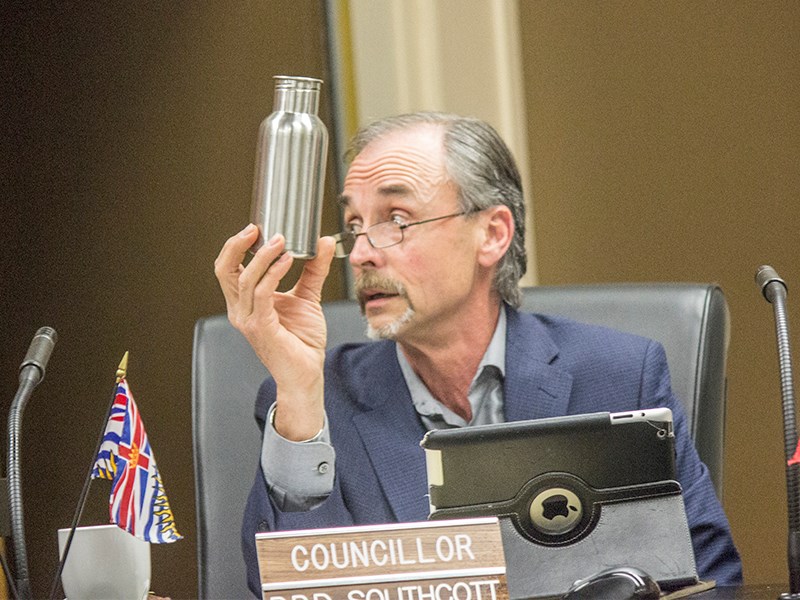City of Powell River’s ban on the sale or distribution of single-use plastic bottled water no longer includes its parks and events after the topic was brought back for reconsideration.
At its meeting on Thursday, April 6, city council voted to ban the sale and distribution of water bottles at all civic facilities. At the time of the vote, mayor Dave Formosa was away on leave and did not participate in the debate. The mayor has the power to have council revisit previous decisions.
Formosa said at a meeting on Thursday, May 4, that he was willing to go along with the ban until he discovered that all civic facilities included parks and would impact businesses such as the concession at Willingdon Beach.
“If we want to do something to show how we feel, let’s ban plastic bags, because they’re horrible; but to ban bottled water is ridiculous,” said Formosa. “Now everyone is going to have to carry a metal container around; that’s utopia. No one’s going to carry them. They’re just not going to do it, but they will recycle their bottles.”
Formosa suggested expanding the number of recycling containers throughout the city to improve recycling rates.
Councillors CaroleAnn Leishman, Rob Southcott, Karen Skadsheim and Russell Brewer voted in favour of the keeping the ban but removing parks and city events from the motion, while councillors Maggie Hathaway and Jim Palm, and Formosa, voted against the ban.
Southcott said the ban is an opportunity to be a good example.
“We are looked to for leadership,” said Southcott. “We need to do little things to lead our community forward. There are many municipalities in this province that are now planning mitigation, not adaptation, of climate change.”
Leishman told council the issue was not just about whether or not people recycle.
“There’s no reason to have bottled water for sale when you can take any bottle you have at home and fill it up with tap water,” she said.
Leishman and Skadsheim said they object to large corporations bottling tap water that municipalities provide as a service, then turning around to sell it at high rates of profit.
“I actually remember a time when you could not buy water in plastic bottles,” said Skadsheim, “and when people saw you with a plastic bottle of water they thought you were totally crazy for buying water.”
Palm said he does not personally buy water in plastic bottles, but he recognizes the public has a general expectation that water will be available for purchase.
Palm said he was not at the meeting to debate whether or not people should drink water from a plastic bottle. Both Palm and Hathaway, who voted against the original motion to ban the bottles, said they would have preferred to have a staff report on the issue before they went ahead and made any decisions.
“Whenever we have a contentious issue, we always rely on staff to bring forward a report so we have all the facts at our fingertips and we can make some informed decisions,” said Palm. “The way this rolled out was wrong.”



